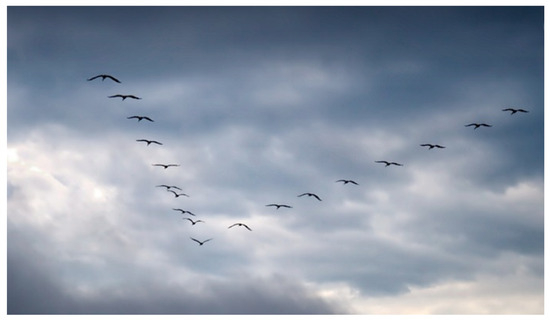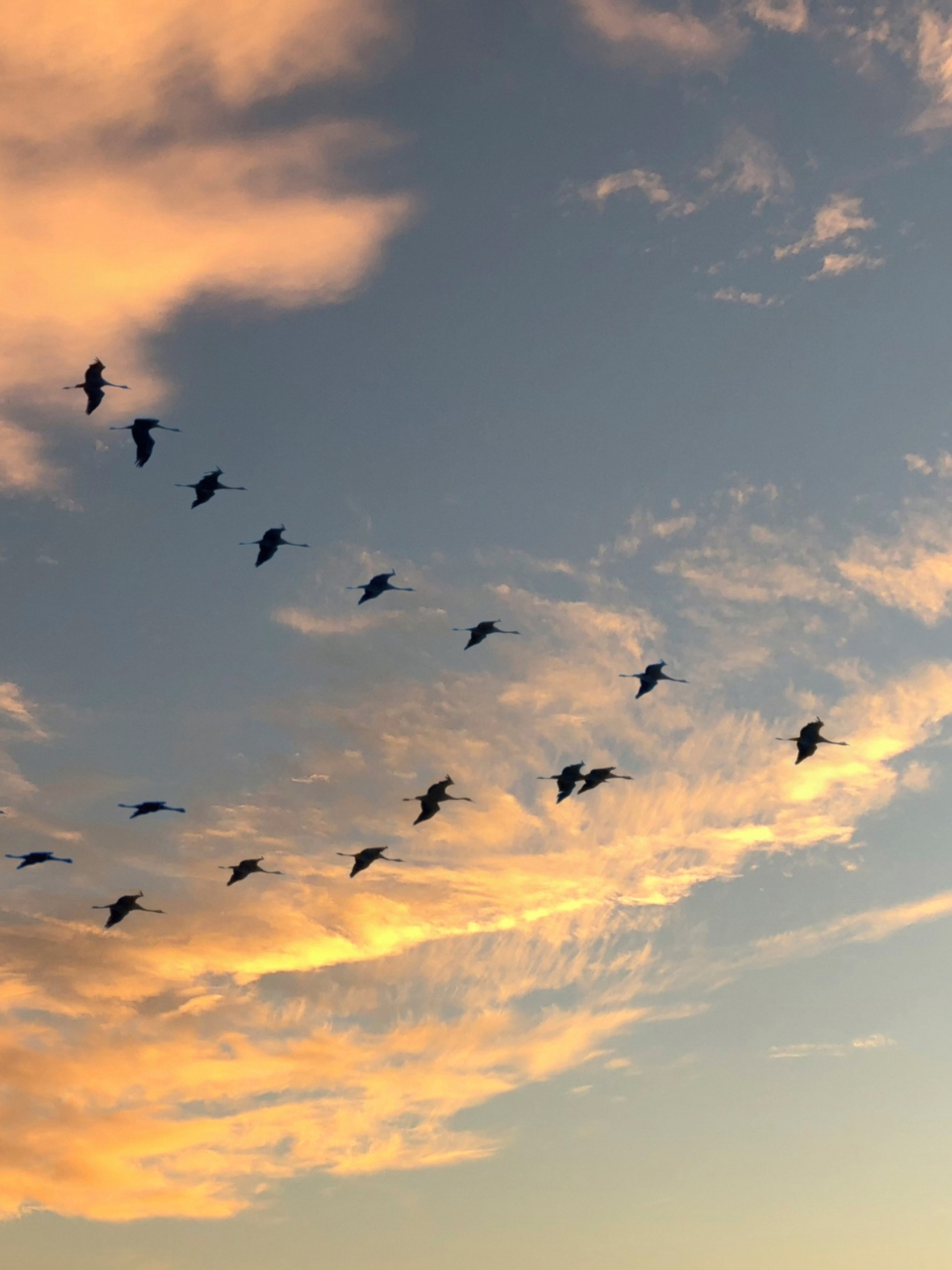Ever gazed up at the sky and wondered: Why do birds fly in that perfect V? That graceful formation isn’t just nature’s choreography—it’s a masterstroke of energy-saving, teamwork, and survival.
The Science of the V

Birds like geese, ibises, and pelicans travel thousands of kilometres during migration. To go the distance, they’ve evolved a flight trick that even NASA finds fascinating. When birds fly in a V, the front bird breaks through the air, creating swirling air currents behind its wings. The birds that follow position themselves to ride this upward-moving air, gaining lift and using less energy to stay in flight.
According to the US National Audubon Society, trailing birds save up to 70% of energy by flying this way. That’s not a small win—that’s a survival advantage.
Teamwork in the Sky

But here’s the twist: being in front is exhausting. So birds take turns. When the leader tires, it shifts back, and another bird steps up. It’s a flying relay race, with every bird doing its part. Scientists from the University of Oxford and Nature journal studies confirm that some species even sync their wing flaps for maximum benefit—like a living engine made of feathers.
More Than Just Aerodynamics

The V formation isn’t just efficient—it’s smart and safe. Flying in this shape gives birds clear sightlines of each other, reducing mid-air confusion and helping them stick together across vast migrations.
So the next time you see that majestic V soaring across the sky, remember:
It’s not just a pretty pattern. It’s a lesson in endurance, cooperation, and aerodynamic intelligence, coded into the wings of wild travellers.








